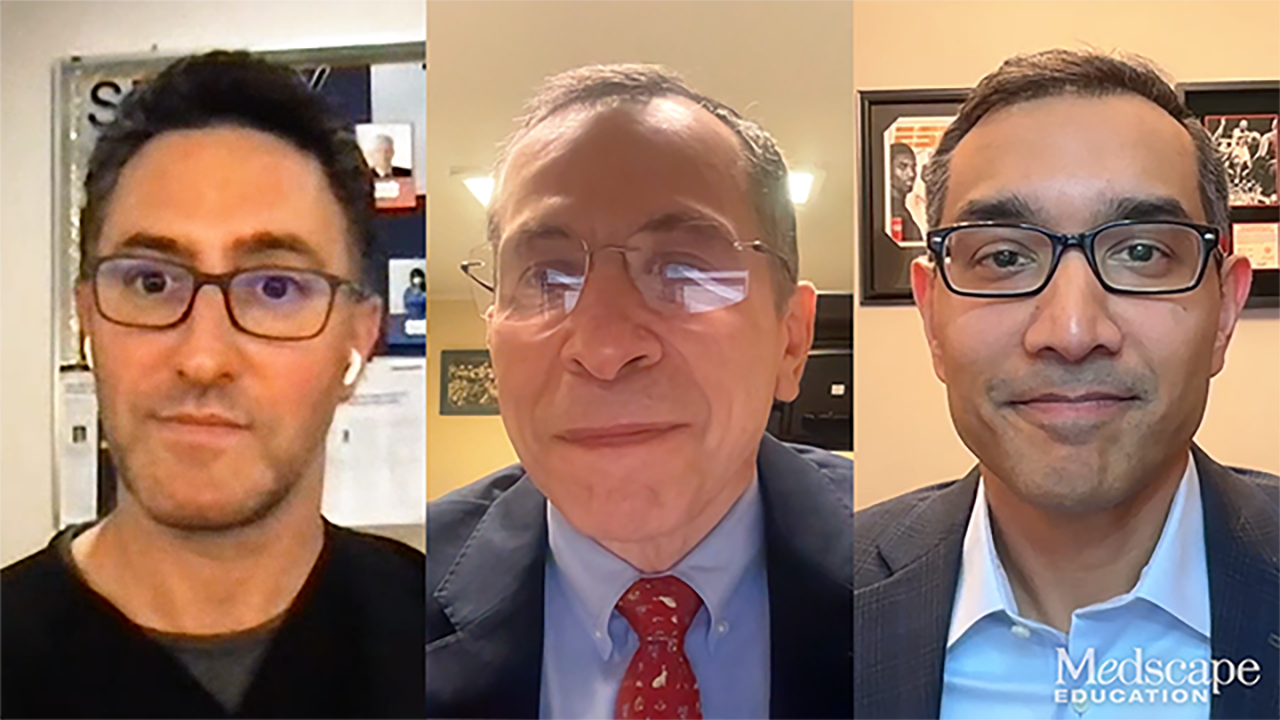Conference MDAngle offers personal perspectives from conference attendees, showcasing their anticipation, quick takeaways, and insights into how the presented research will affect their patients.
The 2024 American Academy of Ophthalmology Annual Meeting was held October 18-21 in Chicago. Attendees participated in a number of presentations and discussions on the latest advancements in retinal disorders, including diabetic macular edema. Presentations included sessions on therapeutic advances, more durable treatment options, and emerging research findings, such as a discussion on diabetic macular edema in underrepresented populations.

Sunir Garg, MD
Professor of Ophthalmology, The Retina Service, Wills Eye Hospital, Thomas Jefferson University; Co-director, Retina Research, MidAtlantic Retina, Philadelphia, Pennsylvania
“The big question everybody wants to know is, am I going to have to do these shots for the rest of my life? We know that for a number of patients, over time, we can reduce their frequency of treatments, and a number of patients don't need to come in so much. But there are some newer treatments on the horizon that'll last a lot longer than what we have now.”
Preconference Considerations
AAO 2024: Previewing Key Presentations on Diabetic Macular Edema
Dr Garg previews noteworthy discussions on diabetic macular edema at AAO 2024, focusing on the inclusion of underrepresented minorities in clinical research. He highlights presentations on promising treatments such as faricimab and aflibercept 8 mg, as well as innovative approaches like gene therapy for more durable patient care. The conference aims to address challenges related to treatment accessibility and efficacy, ultimately improving outcomes for diverse patient populations.
Quick Clinical Takeaways
AAO 2024: Key Advances in Diabetic Macular Edema
Back from the 2024 AAO Annual Meeting in Chicago, Dr Garg highlights key studies on diabetic macular edema (DME). A significant study showed that 8 mg aflibercept benefits all patients, but those with previously treated DME may need more frequent dosing than treatment-naive patients. He noted promising long-term results with aflibercept over 3 years, allowing for fewer injections while maintaining good vision. Dr Garg also discussed the positive outcomes of faricimab in underrepresented racial groups in the ELEVATUM study and emerging treatments like gene therapy, along with studies on the impact of social determinants of health on eye care outcomes.
How Will My Patients Benefit?
AAO 2024: The Impact of New Data and Expanded Access in DME
Dr Garg reflects on insights from the recent AAO meeting, discussing how new data in diabetic macular edema (DME) management will affect patient care. He highlights that high-dose aflibercept can extend treatment intervals, especially benefiting busy, working-age adults. Research indicates that previously treated DME patients also see positive results, though they may require more frequent treatments than treatment-naive individuals. Dr Garg underscores the importance of equitable access to therapies, noting strong responses among underrepresented patients, and shares optimism about gene therapy advancements that could further reduce treatment frequency.
Polling Question
Summary
At this year’s American Academy of Ophthalmology meeting in Chicago, key insights emerged for enhancing patient care, particularly in diabetic macular edema. Notably, newer treatments allowing for extended intervals benefit patients with demanding schedules. A better understanding of treatment responses when transitioning patients to these newer therapies supports a tailored approach, especially for those with prior treatments. Reflecting on the meeting, Dr Sunir Garg emphasized the importance of including underrepresented minorities in clinical research to optimize treatment efficacy across all groups, reinforcing his commitment to compassionate, informed care.
Resources:
Medscape © 2024 WebMD, LLC
Any views expressed above are the author's own and do not necessarily reflect the views of WebMD or Medscape.
Cite this: Conference MDAngle: AAO 2024 Non-AMD Retinal Disorders - Medscape - Oct 11, 2024.










Comments